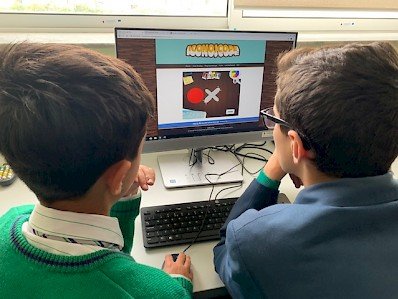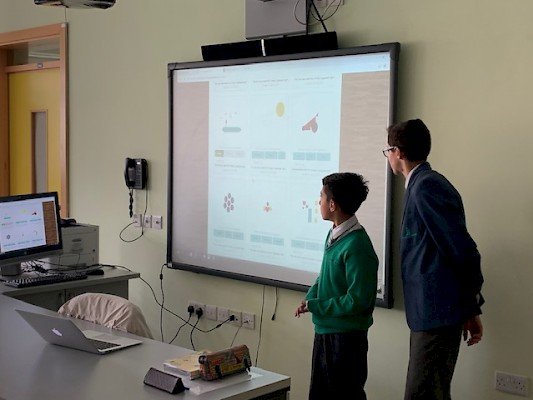
Games for Education: eCrisis in the Classroom


The eCrisis project aims to enable inclusive education through playful and game-based learning.
The Institute of Digital Games (IDG) and the Faculty of ICT are working in collaboration with St Ignatius College, Ellinogermaniki Agogi, National Technical University of Athens, and the University of Vienna to unlock the potential of games to develop the development of social, civic and intercultural competences such as conflict resolution, creative thinking, and reflective debate in primary and secondary education students.
Educational Games Online: Implementation in the Classroom

70 students from St Ignatius College Ħandaq Middle School have collaboratively played the Iconoscope game, during which they have creatively interpreted and drawn abstract concepts as icons, in an endeavour to stimulate and support their creative and communicative skills. The potential to use educational games for 5 year olds and even all the way to educational games for 5th graders can play an important part in the development of skills. With the inclusion of a guidebook written in collaboration with teachers and informed by data collection, the eCrisis project aims to make a measurable impact in the development of civil and intercultural skills.

Free Educational Games: More about Iconoscope and Village Voices
eCrisis uses two award winning games: the Village Voices and Iconoscope which are available to download for free on the website. The project goes further than only providing the games to use, it also includes a guidebook for teachers written by teachers.
Village Voices is a multiplayer game (up to four players) where players collect resources and trade. It was awarded the best learning game in Europe at the 2013 Serious Game Awards. The idea behind the game is to make the students think about how the interactions make them feel. E.g. what does it feel like when someone doesn’t want to trade with you? What are the reasons they don’t want to trade with you? Can you find a solution to this?
Iconoscope is an educational game focused on the illustration of abstract concepts. It is available for tablet as well as online through a browser. In it players use a limited illustration tool to illustrate abstract concepts such as love, war, change, happiness, etc. These drawings are then available in a database and other people can vote on what concept they think it is. The idea is that this will show the players that not everyone envisions the same concepts in the same way, thus encouraging empathy and a shift in perspective, both critical for effective conflict resolution.
Artificial Intelligence Assisting in Creativity
One of the IDG’s areas of research is games that are designed with the assistance of artificial intelligence. In part, Dr Antonios Liapis envisions AI as a type of advisor that can help designers overcome problems or areas in which they become stuck, using the computer as a sounding board for ideas in a similar way that we would turn to our colleagues, friends and/or mentors. Iconoscope implements a touch of this by having four AI assistance that offer the player suggestions based what other people have drawn and is available in the database. Depending on their role they offer something similar or something different, but the idea is that by providing the player with these suggestions, new ideas may flourish.
Don’t miss any of the news and research developments and subscribe to our newsletter below!

